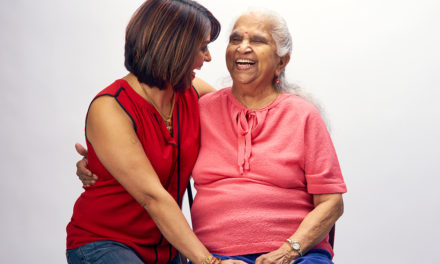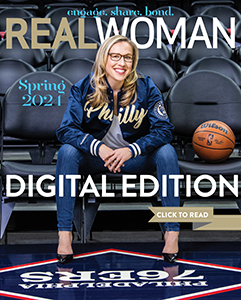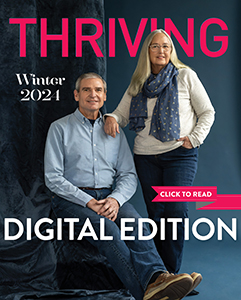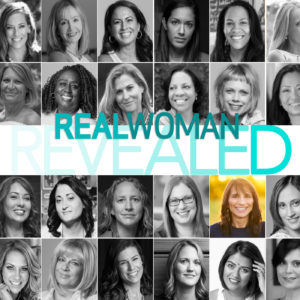If you’ve recently noticed a rash of people walking around all disheveled with bloodshot eyes and an empty gaze, don’t worry—it’s not the zombie apocalypse. Rather, it’s people like me readjusting to the sunlight after binge-watching the second season of Orange is the New Black.
Black has garnered a lot of attention, first, because it’s a groundbreaking “made for Internet” program streamed on a service like Netflix, and second, because it’s a female-driven cast and set in a women’s prison. It’s the latter that confuses me—sure, the plot/setting is a little out there, but it’s not the first female show to be a hit.
 From the moment Lucy and Ethel burst on the small screen, stomping grapes or eating a conveyor’s belt worth of chocolate, there has been a proven audience for female characters. And yet, every time a “women’s movie” or “women’s show” is a hit, bloggers, magazine writers and other entertainment media write a flurry of articles about how Hollywood underestimates women and how maybe this time, things will change.
From the moment Lucy and Ethel burst on the small screen, stomping grapes or eating a conveyor’s belt worth of chocolate, there has been a proven audience for female characters. And yet, every time a “women’s movie” or “women’s show” is a hit, bloggers, magazine writers and other entertainment media write a flurry of articles about how Hollywood underestimates women and how maybe this time, things will change.
And yet, they never do.
Hollywood execs are more likely to greenlight a reboot of a comic book franchise—for the third time—or order a pilot for NCIS: Omaha than they are a vehicle with a female ensemble. Why? Well, for one, Hollywood is run by men. According to an NPR story last year:
Women make up a minority of movie creators: 7 percent of directors, 13 percent of writers and 20 percent of producers; that’s nearly five men for every woman working behind the scenes.
The article also notes that movie producers, in particular, are looking for revenue from international audiences, and what sells overseas are known stories and characters—Spiderman, Batman, and the X-Men, for starters. And with domestic audiences, there’s a perception that women will go see a comic-book movie before a man will see a rom-com. (Case in point, I gladly saw all three of Daniel Craig’s James Bond movies, while my husband would rather have had a colonoscopy than see The Heat. But then again, Daniel Craig is very persuasive.)
Basically, female ensembles are a perceived higher risk than male-driven movies and shows. To wipe that depressing thought from my mind, I decided to think about some of the best (and most iconic) shows and movies with a female ensemble Here’s what I’ve come up with so far. What have I missed—feel free to suggest some more in the comments.
Movies
 Bridesmaids: I am one of the few people who find Kristen Wiig annoying, but even I have to admit that this flick about two best friends, one getting married and moving on and the other drowning in debt and career failure, is a friggin’ hoot. That’s in large part because of Melissa McCarthy’s hilarious breakout performance* as socially awkward Meagan. (*Although Bridesmaids made McCarthy a household name, she will always be Sookie St. James to me.)
Bridesmaids: I am one of the few people who find Kristen Wiig annoying, but even I have to admit that this flick about two best friends, one getting married and moving on and the other drowning in debt and career failure, is a friggin’ hoot. That’s in large part because of Melissa McCarthy’s hilarious breakout performance* as socially awkward Meagan. (*Although Bridesmaids made McCarthy a household name, she will always be Sookie St. James to me.)
Thelma & Louise: Although Brad Pitt’s abs tried to steal the scene in this dark buddy movie, it was the transformations of Thelma & Louise into calm, cool criminals that kept me watching. Susan Sarandon and Geena Davis proved to audiences (and an unsuspecting trucker) that women can be equally badass on the big screen.
Steel Magnolias: Oh man, I can’t even think about this movie without wanting to cry. Sally Field, Shirley MacLaine, Daryl Hannah and freaking Dolly Parton—these women all shined so bright in this movie. The funeral scene where Sally Field breaks down… epic. WHHHYYYYYY?
Waiting to Exhale: Long before her car-crash turn on Being Bobby Brown or her unforgettable (and sweaty) interview with Diane Sawyer—“Show me the receipts”—Whitney played successful television producer Vannah Jackson in this film about four friends. And while I love me some Whitney, the best part of this movie is most definitely when Angela Bassett sets her husband’s CAR ON FIRE.
Charlie’s Angels: Their appearances on the red carpet together may have been annoying, but both Charlie’s Angels movies were pure fun.
Heathers: Cult favorite Heathers broke the mold when it came to teen movies, with queen bees being taken out by put-upon friend Heather and her psychotic new beau J.D. It also gave us classic lines like, “Like it up,” and “I love my dead gay son.” (Mean Girls could fit into this category—it’s a modern version of Heathers, but with social assassination instead of physical assassinations.)
TV Shows
Sex & the City: (I refuse to talk about the SATC movies. Yes, they made a ton of movie, but they were terrible. Simply terrible.) A show about four single, 30-something friends navigating New York’s singles scene, resurrected the Cosmo, created terms like frenemy and modelizer, and made millions of women wonder whether they were a Carrie, Charlotte, Miranda, or Samantha.
 Girls: Dubbed the Millenials’ Sex & the City, Lena Dunham’s hit show follows for 20-somethings as they navigate the singles scene in New York—but this time in Brooklyn and with more focus on their careers instead of their clothes.
Girls: Dubbed the Millenials’ Sex & the City, Lena Dunham’s hit show follows for 20-somethings as they navigate the singles scene in New York—but this time in Brooklyn and with more focus on their careers instead of their clothes.
Designing Women: The lives of four Southern designers are the heart of this 80s sitcom with the explosive speeches from Dixie Carter’s Julia Sugerbaker (typically delivered to her sister, ex-beauty queen Suzanne, but not always).
Desperate Housewives: Mark Cherry’s soapy show about four suburban housewives living on picture-perfect Wisteria Lane was an instant hit when it premiered in 2004. Its narrator, a housewife who committed suicide, quickly reveals to audiences that’s there’s plenty of drama and deception on the block.
The Facts of Life: Like an 80s version of Little Women, with really bad clothes and even worse hair, Facts of Life offered us a gloriously cheesy coming of age tale of tomboy Jo, snobby Blair, jokester Nathalie and innocent Tootie come of age at a boarding school in upstate New York and poor Mrs. Garrett had to suffer through it all.
Golden Girls: In a way the predecessor to Sex & the City, this sitcom followed four retired women navigating the singles scene in Miami—but this time with cheesecake instead of cosmos. Rose is clearly the Charlotte, and Blanche the Samantha, and Dorothy the Miranda. So does that make Sophia the Carrie Bradshaw? Sounds about right to me.







